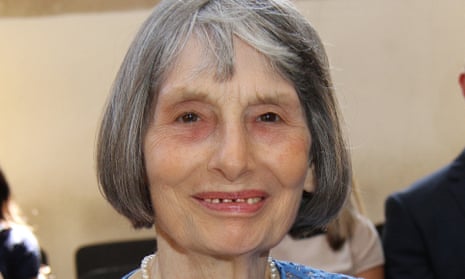My mother, Joan Fratter, who has died aged 77, was a pioneering social worker and, in retirement, a tireless champion of environmental, ethical and social justice causes.
Born in Chingford, Essex, she was the daughter of Lillian (nee Coulson) and Albert Lotts. Along with her twin sister, Joyce, she was born during the height of the second world war to hardworking parents who ran a business supplying electrical parts to help the war effort.
She attended Walthamstow girls’ grammar school, then studied English and Latin at the University of Reading, where she met David Fratter. They married in 1964 and moved to Liverpool, where they had two children, Paul and me.
Joan studied to become a social worker focusing on fostering and adoption. Separating from David in 1973, she juggled a passion and dedication for her work with the challenges of raising two young children as a single parent. She began what would become a lifelong pattern of affecting positive change when she successfully argued for extended visiting hours for parents of hospitalised children when I was admitted as a two-year-old to Alder Hey children’s hospital.
In 1978 Joan and her children moved back to Chingford. She continued fostering and adoption work with the children’s charity Barnardo’s, pioneering many changes in policy and practice. Recognising a lack of diversity both in the families applying to foster or adopt and in the social workers helping to match families with children, she actively sought to recruit workers and families from ethnic groups that aligned with the ethnicities of the children waiting for placement, appreciating and celebrating the importance of ethnic identity.
In the early 1990s, Joan resumed the research she began in 1985 into open adoption. One of the earliest proponents of open placement, where the birth and adoptive families remain in contact, she completed her PhD in 1992.
Never shying away from a challenge, Joan helped to launch Barnardo’s Positive Options, providing services for families affected by HIV/Aids. Compassionate and uncomplaining, she tackled the harrowing work of future planning for children whose parents had what was then a terminal illness and created memory books and boxes capturing details of their family origins, traditions and beliefs.
After retiring at 67 she did not slow down, volunteering her time with adoption panels, conservation groups and NHS campaigns as well as enjoying the theatre, museums, her allotment and time with her grandchildren. She was a devoted grandmother, parent and friend, and whether marching to save bees, caring for a friend in need or baking for her neighbours she always had a warm smile and open heart.
Joan is survived by Paul and me, her grandchildren, Avery, Isabel, Dominic, Lauren and Melissa, and her siblings, Joyce and Alan.
